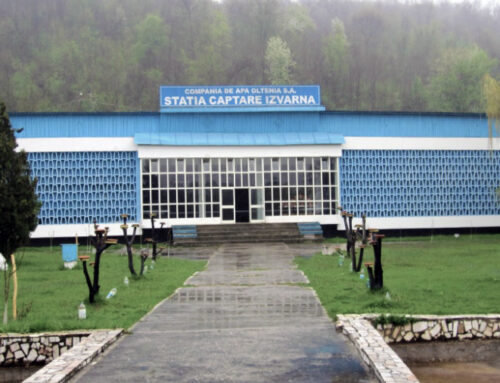
The National Institute for Research and Development in Forestry “Marin Dracea” (INCDS) has led Romania’s research activities in the forestry sector since 1933. INCDS is an official “national centre of excellence and R&D” in forest biology and forest management. The institute partners with Romanian government ministries, international organizations and the private sector, and it is involved in research in all aspects of forest management, protection and assessment. Based in Voluntari – Ilfov, the institute has branches throughout Romania.
INCDS has earned a stellar reputation for its expertise. It works with all the leading international organizations in its field, including the International Union of Forest Research Organizations (IUFRO), the European Forest Institute (EFI), the International Co-operative Programme on Assessment and Monitoring of Air-Pollution Effects on Forests (ICP-Forests), and many others. INCDS is currently participating in an ICP-Forests Program project on air pollution along with representatives from 42 countries.
Completing an inventory of Romania’s forest
General Manager Tomescu Romică, a former Minister of Water, Forests and Environmental Protection, explains, “We want to ensure the sustainable management of forests. We work with Romsilva as they own 50% of Romanian forests, and we also partner with the Association of Romanian Private Forests Owners.” One of INCDS’s important current projects at the national level is to complete an inventory of Romania’s forests. INCDS also provides crucial research support to Romania’s National Forests Administration.
Badea Ovidiu, Scientific Director, points out that INCDS plays a leading role in the Romanian and European bio-economy development programme. He says, “INCDS is involved in European research efforts concerning climate change, atmospheric pollution and the increase of economic competitiveness. We have many projects underway regarding transfer of knowledge, and we provide important information about the status of Romania’s forests, entomology, phytopathology, genetics and wildlife biology. We are currently completing a project on forest ecosystem services such as provisioning, regulation, cultural and wellbeing of people.”
INCDS wants to continue to contribute to forestry projects in Romania and worldwide, and it welcomes international partnerships. Badea Ovidiu says, “INCDS is currently working on the international INFRAIA project and has proposed criteria for identifying virgin forests, of which Romania has the last ones in Europe.”Tomescu Romică concludes, “At the local level, there is no project regarding forestry that cannot benefit from our involvement. For our international partners, INCDS offers proven expertise, well-developed research infrastructure, skilled specialists, and a reputation as a trustworthy partner for both national and international R&D projects.”
Protecting Romania’s Virgin Forests
Romania is believed to have around 218,000 hectares of virgin forests, more than any other European country outside Russia. Many local and international organisations are working hard to preserve this exceptional natural heritage.
Virgin or old-growth forests are untouched by humans. They are amazingly complex ecosystems where seedlings, young, mature and old trees are interspersed with very large, very old trees. Dead trees and decaying logs are just as important as the living trees, since they offer homes for different flora and fauna. Because of the scientific, educational, and ecological value of virgin forests, in 2012 Romania’s Ministry of the Environment and Forests began a programme to identify such forests throughout the country.
Virgin beech forests nominated for UNESCO list
In late 2015, the Romanian government, Greenpeace and the World Wildlife Fund launched the nomination process for the virgin beech forests of Romania to be included in the UNESCO World Heritage list. The designation process and all the procedures related to it will take approximately two years. Virgin beech forests in Germany and the Carpathians (in Slovakia and Ukraine) are already on the UNESCO World Heritage list. The nominated primeval Romanian forests include Strambu Baiut-Grosii Tiblesului in Maramures and Sinca in the Fagaras mountains.
The Royal Dutch Society for Nature Conservation (KNNV) in co-operation with the Romanian Forest Research and Management Institute (ICAS) conducted a major study of Romania’s virgin forests between 2001 and 2004. The main goal of the project was to identify the importance and the actual presence of virgin forests in Romania in order to protect them. Such forests are under great pressure all over the world as trees are cut for fuel or to build infrastructure. The project yielded a national database on Romania’s virgin forests as well as an action plan on protecting these forests.
The National Institute for Research and Development in Forestry “Marin Dracea” (INCDS) plays a leading role in understanding and preserving Romania’s virgin forests. The institute is involved in research in all aspects of forest management, protection and assessment. INCDS participates in many European and international research projects, including a current project on the impact of air pollution on forests. INCDS is in the process of completing an updated inventory of all Romania’s forests and has proposed new, detailed criteria for identifying virgin forests. Thanks to efforts like these, Romania’s virgin forests have a chance to continue to thrive.
National Institute for Research and Development in Forestry “Marin Dracea” (INCDS)
Eroilor Blvd. No. 128
Voluntari, Ilfov
Tel.: +40 21 350 32 38
+40 21 350 32 41
+40 21 350 32 42
+40 21 350 32 43
[email protected]
www.icas.ro





